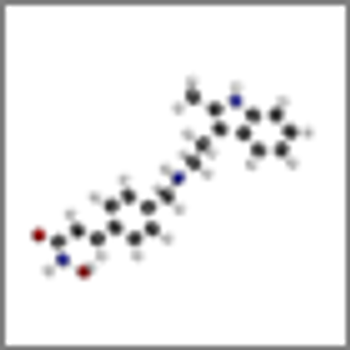
Elevated levels of TGF-α and IL-6 in newly diagnosed chronic-phase chronic myeloid leukemia patients were predictive of failure to achieve molecular response.

Your AI-Trained Oncology Knowledge Connection!


Elevated levels of TGF-α and IL-6 in newly diagnosed chronic-phase chronic myeloid leukemia patients were predictive of failure to achieve molecular response.

The American Society of Clinical Oncology endorsed the European Association of Urology’s treatment guideline on muscle-invasive and metastatic bladder cancer.

In patients with melanoma, lower vitamin D levels were associated with poorer survival outcomes, according to a prospective study, independent of C-reactive protein levels.

A study found an increased incidence of non-Hodgkin lymphoma, but no other secondary malignancies, in chronic myeloid leukemia patients treated with imatinib.

Temsirolimus produced some responses in patients with relapsed/refractory primary central nervous system lymphoma, but the responses tended to be short-lived.

Patients with chronic phase CML and pre-existing mild to moderate liver and/or renal dysfunction can be safely treated with frontline nilotinib or dasatinib, according to a new study.

A retrospective cohort study showed that body mass index and body surface area are predictive of certain behaviors of papillary thyroid carcinoma.

Long-term regular use of low-dose aspirin was associated with a decreased risk of prostate cancer in individuals with cardio- or cerebrovascular disease.

Survivors of adolescent and young adult cancers have more than twice as high a risk of developing cardiovascular disease than people without a cancer history, according to a large cohort study.

A large cohort study showed that the risk of colorectal cancer is increased following a diagnosis of prostate cancer, suggesting colorectal cancer screening should be considered following a prostate cancer diagnosis.

An integrated genomic analysis has found that pancreatic cancer can be divided into four specific subtypes based on molecular characteristics. This division could help guide treatment decisions and future research avenues into this difficult malignancy.

An analysis of randomized controlled trials in soft-tissue sarcoma over 40 years found that progression-free survival and response rate are reasonably well correlated with overall survival, and are thus acceptable surrogates to use.

A novel high-throughput screening assay was used to identify a number of compounds that could potentially offer therapeutic benefit in Ewing sarcoma.

A new study validated a prognostic nomogram for retroperitoneal sarcoma using a large, external cohort. The nomogram incorporates six variables, and provided strong concordance with observed disease-free and overall survival.

Analyses from the phase III ALSYMPCA trial showed that treatment with radium-223 resulted in quality-of-life improvements over placebo in patients with castration-resistant prostate cancer and symptomatic bone metastases.

The addition of ramucirumab to docetaxel improved progression-free survival compared with docetaxel alone in a randomized phase II trial of patients with locally advanced or metastatic urothelial carcinoma.

A phase I trial found that panobinostat combined with epirubicin is well tolerated and could offer benefit in patients with refractory sarcoma.

The FDA has expanded the indication for palbociclib (Ibrance), to be used in combination with fulvestrant in women with HR-positive, HER2-negative advanced breast cancer.

Muscle area decreases significantly during treatment for metastatic colorectal cancer, and lower muscle area is associated with poor survival.

A study including nearly 30,000 women found that newly diagnosed early-stage breast cancer patients often undergo advanced imaging tests, in spite of recommendations against this practice.

A simple quality improvement initiative involving an improved patient access center and patient education resulted in a 60% reduction in the use of ER visits in oncology patients.

A set of autoantibodies was found to be associated with lung adenocarcinoma when compared to smoker control patients, according to a new study.

ASCO updated guidelines, recommending that higher-risk premenopausal ER-positive breast cancer patients receive ovarian suppression with adjuvant endocrine therapy.

Abituzumab did not extend progression-free survival in patients with castration-resistant prostate cancer, though it did improve bone lesion progression.

Allocating chemotherapy treatment based on a comprehensive geriatric assessment failed to improve treatment failure-free survival or overall survival in elderly patients with advanced non–small-cell lung cancer.

A phase I trial found that blinatumomab, a bispecific T-cell engager antibody, is feasible with regard to safety for treatment of patients with relapsed or refractory non-Hodgkin lymphoma.

A new personalized DNA-based assay can detect very low levels of persistent disease in chronic myeloid leukemia patients thought to be in deep remission.

A number of clinical and sociodemographic factors, including age and gender, were found to be independently associated with fatigue and depression among cancer patients who were treated with hematopoietic cell transplantation.

High expression levels of EGFR ligands epiregulin and amphiregulin are associated with increased benefit from panitumumab in patients with RAS wildtype advanced colorectal cancer.

Young breast cancer patients increasingly undergo genetic testing for BRCA1 and BRCA2 mutations. Testing also appears to influence surgical treatment decisions.